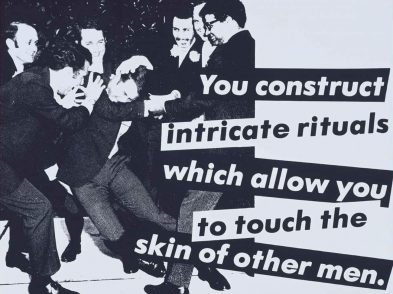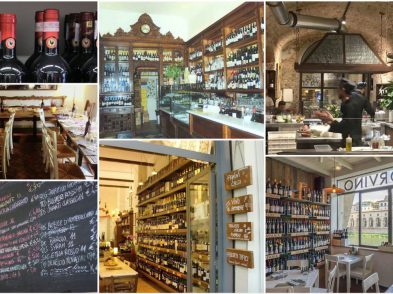For the months leading up to my studies in Florence, I crammed Italian vocab, conjugations and grammar without a teacher or practice partner. My weakest link was speaking and the Renaissance city my solution.
But using Italian in Florence isn’t easy. Upon arriving, Italians kept speaking English to me, a common study-abroad city phenomenon that I hadn’t experienced once in my years of Spanish. Even now, I will speak paragraphs in Italian (with mostly correct conjugations) and still hear English responses. Plus, my Italian friends often require coercion to speak their language rather than mine. Learning Italian would be a challenge.
Then again, The Florentine’s office lunches served up more Italian than I could handle. Thick and swift accents abounded. Communicating with the myriad voices at the table became my goal.
But first, I needed a speaking foundation, forged in gelaterias. My gelato habit, like a Starbucks dependence, costs three dollars a trip, factors into my budget and encourages trips to the gym. I went to Gelateria dei Neri, La Carraia or La Strega Nocciola daily, translated the flavors and exhausted all Italian phrases for ordering a waffle cone. I don’t know why scoopers spoke Italian to me. Perhaps they sensed my gelato-obsessed aura or dependence on their help. Worker-customer interactions elicit myriad responses, which is not as obvious when speaking in my native language. Yet, I could fill pages with the complex exchanges resulting from my opener, “Can I have a three-flavor waffle cone?”

Florence skyline from the rooftop of Grand Hotel Cavour / photo credit @helencfarrell
But ordering gelato on the regular only established my foundation. As fall advanced, my unprepared California-self required a fleet of warmer clothes. Clochard Vintage won my patronage. Located between work and school along via dei Conti, owner Arlette Dorr radiates a charming disposition, carries a bob of reddish hair and color-coordinates better than me. In my weekly visits for 15-euro unworn Panizza hats (sold online for 180 euro) or 1970s sweaters, I made a friend. You can find me loafing around that closet-sized store as we practice each other’s languages and for Italianesque fashion advice.
Nevertheless, my clothing budget is only so large and Dorr must work. Past Villa Strozzi, Stone Monkey climbing gym is a 30-minute chittering-teeth bike ride from my Duomo-adjacent apartment. The journey remains pure pain for my desert soul, but the gym bustles with chatty Italians.
As a culture, American climbers are chatty. Imagine Italian climbers, who constantly over- or under-estimate my abilities. Either someone translates vegetables for me or tells me about his motorcycle parts with a full-blown, rapid-fire accent. On the latter, I’ll say, “Sì, sì, sì,” nod my head and ruffle my brow. Then I run to another fellow clamberer for a translation of whatever just happened. I tell this quip to Italians, who claim it never works. They have also forgotten the untold times I’ve pulled this on them.
Now I’m more honest, having increased my use of “Non ho capito” (I don’t understand), “Puoi ripeterlo?” (Can you repeat that?) and “Più lentamente, per favore” (Can you say that more slowly, please?). Prior to the last of couple months, I was unable to be honest because using these phrases would have plunged me into English-land. Once I even considered lying about my native tongue. “Please speak Norwegian to me.”
Today I would label my Italian as workable. It does the job, needs help frequently and becomes a little overwhelmed with theoretical concepts. But I’m forever surprised at my Italian progress. I frequently make people laugh, know the motorcycle words that formerly stumped me and command a taskforce of curse words. In fact, the other week, a friend said, “Il tuo Italiano non è perfetto, pero è divertente.” My translation: “Your Italian isn’t perfect, but it’s funny.” A compliment. An insult.
Finally, just like derivatives in calculus, the thick-accented, rapid-fire Italian words during lunch-hour suddenly made sense (most of the time).








